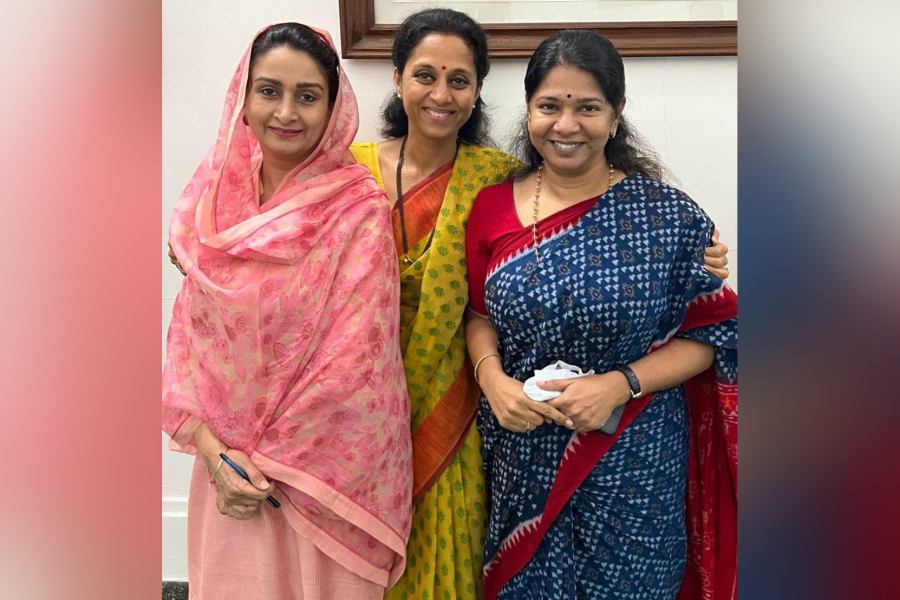Supriya Sule was anointed as one of the presidents of the Nationalist Congress Party by Sharad Pawar recently. This was an uncommon move. Male members of regional political families usually take over as the head of the state while female members are encouraged to work at the national level to increase a political party’s visibility and influence.
The pattern of men getting preference over women in dynasty-based parties is common across the country; the only exception being Mehbooba Mufti taking over the reins of the People’s Democratic Party after the death of her father, Mufti M. Sayeed, in Jammu and Kashmir. In Tamil Nadu, after M. Karunanidhi’s death, the control of the Dravida Munnetra Kazhagam was given to his younger son, M.K. Stalin, while Kanimozhi, Stalin’s half-sister, remains actively involved in national politics.
In Telangana, where K. Chandrashekar Rao is chief minister, his son, K.T. Rama Rao, is the Bharat Rashtra Samithi’s working president and is deeply involved in state politics. But K.C.R.’s daughter, Kavitha Kalvakuntla, was given a role as a member of Parliament. After her loss in the 2019 polls, she was made an MLC.
In the Rashtriya Janata Dal in Bihar, Lalu Prasad’s son, Tejashwi Yadav, has taken over as the party's leader. Tejashwi’s elder sister, Misa Bharti, is confined to national politics although she entered politics before Tejashwi.
In Meghalaya, Conrad Sangma, the current chief minister, is the son of P.A. Sangma who was chief minister and Lok Sabha Speaker; his daughter, Agatha Sangma, is a member of Parliament.
In Punjab, the Shiromani Akali Dal is led by the Badal family. Sukhbir Singh Badal, the son of the former chief minister, Parkash S. Badal, is the current president of the party. However, his daughter-in-law, Harsimrat Kaur Badal, was moved to national politics. Similar has been the case with the Samajwadi Party, the biggest Opposition party in Uttar Pradesh.
There are other states with regional parties where the son has taken over the political legacy of the father. Omar Abdullah of the Jammu and Kashmir National Conference, Hemant Soren of the Jharkhand Mukti Morcha and Naveen Patnaik of the Biju Janata Dal in Odisha come to mind.
The damage this tradition does is significant. Women are often fielded to ensure that the seats remain within the party fold. The real aim though is preventing women from gaining actual hold on the ground and on the cadre, forcing them to be dependent on the family for their political capital. An example of this would be the Congress. Rahul Gandhi, despite several electoral reversals, has been the face of the Congress. Priyanka Gandhi, on the other hand, remains largely behind the scenes. Despite formulating initiatives for women’s representation, such as her announcement of 40% tickets for women in the 2022 UP assembly elections, the centre stage has eluded Priyanka Gandhi. The Congress has thus been justifiably accused of not doing enough to promote women's participation in politics.
The relevant data remain illuminating. Women's representation in Parliament increased from 8% in 2004 to 14% in 2019. But around the same time, the average number of women legislators in assemblies across the nation accounts for only 8%.
Perhaps it is time for the evolution of a new kind of politics that assess such parameters as how many women vote, how many of them contest elections, and how many of them get elected.
A fourth parameter that must be factored in is the presence of women in politics in a more centralised role. This form of succession would pave the way for women, even those without prior political experience, into a domain of significant political enterprise.











